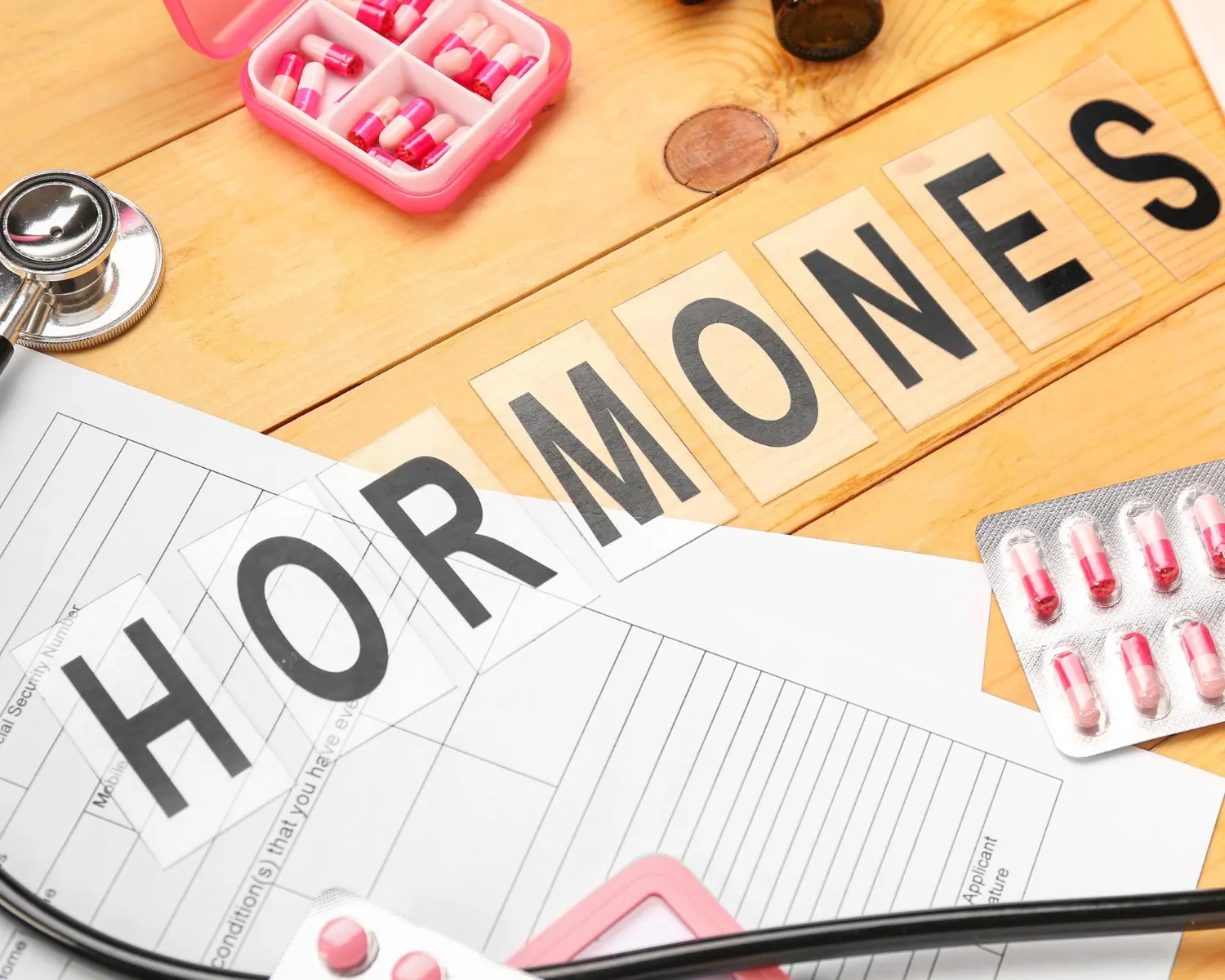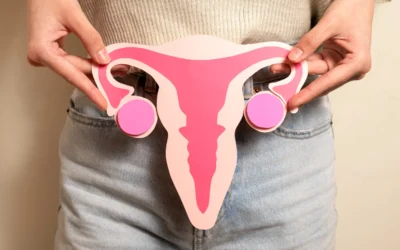Hormones are the body’s chemical messengers, regulating a vast array of physiological functions, from metabolism and mood to reproduction and growth. When these hormones are in balance, the body operates efficiently, ensuring optimal energy levels, emotional stability, and overall well-being. However, even slight imbalances can lead to significant disruptions, affecting both physical and mental health.
Hormonal imbalances are common and can be triggered by various factors, including chronic stress, poor diet, underlying medical conditions, and natural life transitions such as puberty, pregnancy, and menopause. The symptoms of hormonal imbalances vary widely, often mimicking other conditions, which makes early recognition crucial for effective intervention.
This article presents a comprehensive checklist of symptoms that suggest a hormone imbalance, detailing their causes, impacts, and potential solutions. By understanding these symptoms, individuals can take proactive steps toward hormonal health, whether through lifestyle modifications, natural remedies, or medical treatments.
In This Article
Common Symptoms of Hormonal Imbalance
Hormonal imbalances can manifest in different ways depending on which hormones are affected. Some symptoms are mild and manageable, while others can significantly impair daily life. Below is a breakdown of the most prevalent signs of hormonal disruptions and their potential causes.
1. Persistent Fatigue and Low Energy Levels
One of the most telling signs of a hormone imbalance is chronic fatigue, even after a full night’s rest. Several key hormones play a crucial role in regulating energy levels, and when they are out of balance, persistent exhaustion can occur.
- Hypothyroidism (low thyroid hormone levels) – The thyroid gland regulates metabolism, and when it underproduces hormones (T3 and T4), the body’s energy production slows down, leading to sluggishness, brain fog, and difficulty staying alert. Many people with hypothyroidism experience extreme tiredness even after resting.
- Adrenal fatigue and cortisol imbalance – The adrenal glands produce cortisol, the body’s primary stress hormone. When cortisol levels are too high due to chronic stress, it can lead to feelings of burnout. Conversely, if cortisol levels become too low, individuals may struggle with extreme fatigue, difficulty waking up in the morning, and energy crashes in the afternoon.
- Insulin resistance – Insulin helps regulate blood sugar levels, and when the body becomes resistant to insulin, energy metabolism is impaired. This results in frequent energy dips, sugar cravings, and difficulty maintaining stable blood sugar throughout the day.
2. Unexplained Weight Changes
Fluctuations in weight, despite consistent diet and exercise habits, can indicate underlying hormonal issues. Many hormones influence metabolism, fat storage, and appetite control.
- Thyroid hormones (T3, T4) and metabolism – An underactive thyroid (hypothyroidism) slows metabolism, making weight loss difficult and leading to unexplained weight gain. Conversely, an overactive thyroid (hyperthyroidism) can cause rapid, unintended weight loss, often accompanied by muscle wasting.
- Cortisol and stress-related weight gain – Chronic stress leads to elevated cortisol levels, which triggers the body to store fat, especially around the abdomen. Cortisol also increases cravings for high-calorie, sugary foods, leading to weight gain despite no major dietary changes.
- Insulin and fat storage – Insulin resistance, a condition often associated with prediabetes and type 2 diabetes, makes it harder for the body to metabolize glucose efficiently. This leads to increased fat storage, particularly in the midsection, and difficulty losing weight.
- Leptin and ghrelin imbalance – Leptin is the hormone responsible for signaling satiety, while ghrelin stimulates hunger. When these hormones are out of balance, individuals may feel constantly hungry, overeat, or experience intense food cravings that lead to weight gain.
3. Mood Swings, Anxiety, and Depression
Hormones play a critical role in brain chemistry and emotional regulation. An imbalance in key hormones can result in mood instability, anxiety, and depressive symptoms.
- Estrogen fluctuations and mental health – In women, low estrogen levels are linked to increased anxiety, irritability, and depressive symptoms. This is particularly common during menopause, postpartum, and in cases of estrogen dominance, where imbalances cause mood swings.
- Testosterone levels and mood – Low testosterone in men and women can lead to increased irritability, lack of motivation, and depressive states. Men with testosterone deficiencies often report feelings of sadness and low self-esteem.
- Cortisol and stress sensitivity – Chronic stress can lead to elevated cortisol levels, which overstimulate the nervous system, making individuals more prone to anxiety, restlessness, and emotional outbursts. High cortisol levels can also suppress serotonin, a neurotransmitter responsible for happiness and emotional balance.
4. Sleep Disturbances and Insomnia
Adequate sleep is essential for maintaining hormonal balance, but hormonal imbalances themselves can interfere with sleep quality.
- Cortisol dysregulation and disrupted sleep cycles – If cortisol remains elevated at night due to chronic stress, it can interfere with melatonin production, making it difficult to fall asleep and stay asleep.
- Progesterone deficiency in women – Low progesterone levels, particularly in perimenopausal and menopausal women, have been linked to poor sleep quality, frequent nighttime awakenings, and difficulty staying asleep.
- Melatonin suppression from blue light exposure – Excessive screen time before bed can disrupt melatonin production, making it harder to fall asleep naturally and reducing sleep efficiency.
5. Irregular Menstrual Cycles and Reproductive Issues
In women, menstrual cycle irregularities are a key sign of hormonal imbalances affecting reproductive health.
- Polycystic ovary syndrome (PCOS) and irregular periods – PCOS is a hormonal disorder that leads to excessive androgens (male hormones), which disrupt ovulation and cause irregular or absent menstrual cycles.
- Estrogen dominance and heavy periods – Excess estrogen relative to progesterone can result in heavy, painful periods, severe PMS symptoms, and increased risk of fibroids.
- Low estrogen and skipped periods – When estrogen levels are too low, as seen in perimenopause or hypothalamic amenorrhea, menstrual cycles can become infrequent or stop altogether.
6. Low Libido and Sexual Dysfunction
Both men and women can experience a decline in sexual desire due to hormonal imbalances.
- Low testosterone in men and women – Testosterone is essential for libido in both sexes. Low levels lead to decreased sexual desire, erectile dysfunction in men, and vaginal dryness in women.
- Estrogen imbalance and vaginal discomfort – Low estrogen can cause vaginal dryness and discomfort during intercourse, making intimacy less enjoyable for women.
- Prolactin excess and suppressed libido – High levels of prolactin, a hormone that regulates lactation, can suppress sexual desire in both men and women.
7. Hair Loss or Thinning
Excessive hair shedding or noticeable thinning may indicate a hormonal imbalance affecting hair growth cycles.
- Thyroid dysfunction and brittle hair – Both hypothyroidism and hyperthyroidism can cause excessive hair shedding, thinning, and changes in hair texture.
- High dihydrotestosterone (DHT) and hair thinning – Elevated levels of DHT, a derivative of testosterone, contribute to male and female pattern baldness.
- Postpartum hormonal shifts – After childbirth, estrogen and progesterone levels drop sharply, leading to temporary postpartum hair loss.
8. Digestive Issues and Gut Problems
Hormonal imbalances can disrupt digestive processes, leading to gastrointestinal discomfort.
- Estrogen dominance and bloating – High estrogen levels are associated with increased water retention and bloating, especially before menstruation.
- Thyroid dysfunction and digestion – Hypothyroidism slows digestion, leading to constipation, while hyperthyroidism speeds up digestion, causing diarrhea.
- Cortisol and gut permeability – High cortisol levels contribute to leaky gut syndrome, increasing inflammation and digestive issues.
9. Skin Problems and Acne
Hormonal imbalances are a common cause of adult acne and other skin issues.
- Excess androgens and oily skin – Elevated testosterone and DHT increase sebum production, leading to clogged pores and acne breakouts.
- Estrogen and progesterone fluctuations – Many women experience hormonal acne during menstruation, pregnancy, or menopause due to changes in estrogen and progesterone.
- Cortisol and inflammatory skin conditions – Chronic stress can trigger eczema, psoriasis, and delayed wound healing due to prolonged inflammation.
10. Increased Sensitivity to Temperature Changes
Abnormal body temperature regulation is often linked to thyroid imbalances.
- Hypothyroidism and cold intolerance – Sluggish thyroid function reduces circulation, making individuals feel cold even in warm environments.
- Hyperthyroidism and heat sensitivity – An overactive thyroid speeds up metabolism, causing excessive sweating and discomfort in warm temperatures.
11. Brain Fog and Difficulty Concentrating
Hormones play a significant role in cognitive function, affecting memory, focus, and mental clarity. When hormonal imbalances occur, individuals may struggle with persistent brain fog, forgetfulness, and an inability to concentrate.
- Estrogen and cognitive function – Estrogen supports neurotransmitter activity, particularly in women. Low estrogen levels, common during menopause, can lead to forgetfulness, difficulty processing information, and an overall decline in cognitive sharpness.
- Thyroid hormones and mental clarity – Hypothyroidism often results in sluggish thinking, memory lapses, and difficulty concentrating, whereas hyperthyroidism can cause restlessness and an inability to focus.
- Cortisol imbalance and stress-induced brain fog – Chronic stress and high cortisol levels can impair memory retrieval and mental processing speed, leading to “brain fog.” This is especially common in people experiencing burnout.
12. Joint Pain and Muscle Weakness
Unexplained muscle weakness, joint pain, or stiffness can sometimes indicate a hormonal issue rather than just aging or overuse.
- Low testosterone and muscle mass loss – Testosterone plays a key role in maintaining muscle strength. Low levels in men and women can contribute to muscle weakness, fatigue, and difficulty building muscle.
- Estrogen and joint pain – Estrogen has anti-inflammatory properties that help protect joints. A drop in estrogen levels, particularly in menopausal women, can lead to increased joint pain and stiffness, sometimes mistaken for arthritis.
- Cortisol and muscle breakdown – Chronic high cortisol levels can contribute to muscle wasting and joint discomfort due to increased inflammation.
13. Changes in Appetite and Cravings
Hormonal fluctuations can cause unexpected changes in appetite, from persistent hunger to sudden loss of interest in food.
- Leptin resistance and constant hunger – Leptin, the hormone responsible for signaling fullness, can become dysregulated, leading to increased hunger and overeating. This is particularly common in individuals with obesity or insulin resistance.
- Ghrelin and increased cravings – Ghrelin, known as the “hunger hormone,” rises when the body needs food. An imbalance can cause excessive cravings, especially for high-calorie, sugary, or fatty foods.
- Cortisol and stress eating – High cortisol levels often lead to emotional eating and cravings for unhealthy foods, contributing to weight gain and metabolic issues.
14. High Blood Pressure and Heart Rate Variability
Hormonal imbalances can impact cardiovascular health, leading to irregular heartbeats, high blood pressure, or circulation issues.
- Thyroid hormones and heart rate regulation – An overactive thyroid can cause a rapid heartbeat, while an underactive thyroid can lead to a slow pulse and low blood pressure.
- Cortisol and hypertension – Chronically high cortisol levels contribute to high blood pressure by constricting blood vessels and increasing sodium retention.
- Estrogen and cardiovascular function – Estrogen supports heart health by maintaining blood vessel elasticity. Low estrogen levels, common after menopause, can increase the risk of high blood pressure and cardiovascular disease.
15. Reduced Immune Function and Frequent Illnesses
A weakened immune system and frequent infections may indicate hormonal imbalances affecting immune response.
- Cortisol suppression of immune function – Prolonged stress and elevated cortisol can weaken the immune system, making individuals more susceptible to colds, infections, and slow wound healing.
- Thyroid imbalances and immune dysfunction – Hypothyroidism and hyperthyroidism can both impact immune function, leading to increased vulnerability to illnesses.
- Testosterone and immune regulation – Low testosterone levels have been linked to reduced immune response, while extremely high levels can suppress immune activity.
Potential Causes of Hormonal Imbalance
Understanding the root causes of hormonal imbalances can help individuals take proactive measures to restore balance.
- Chronic stress and cortisol overload – Prolonged stress leads to excessive cortisol production, disrupting the balance of other hormones like insulin, thyroid hormones, and sex hormones.
- Poor diet and nutritional deficiencies – Diets high in sugar, processed foods, and unhealthy fats can negatively impact insulin sensitivity, gut health, and overall hormonal regulation.
- Sedentary lifestyle or over-exercising – Lack of physical activity can contribute to insulin resistance and weight gain, while excessive exercise can lead to adrenal fatigue and low sex hormone levels.
- Sleep deprivation and circadian rhythm disruption – Poor sleep affects melatonin, cortisol, and growth hormone production, leading to widespread hormonal imbalances.
- Toxin exposure and endocrine disruptors – Chemicals found in plastics, pesticides, and personal care products can interfere with hormone function by mimicking or blocking natural hormone activity.
- Aging and natural hormonal shifts – Hormonal fluctuations occur naturally with age, such as declining estrogen in menopause and reduced testosterone in men over 40.
- Medical conditions such as PCOS, diabetes, or thyroid disorders – Conditions like polycystic ovary syndrome (PCOS), insulin resistance, and hypothyroidism are common contributors to hormonal imbalances.
When to Seek Medical Advice
While some hormonal fluctuations are normal, persistent or severe symptoms warrant medical evaluation. Individuals experiencing the following should seek professional guidance:
- Sudden and extreme weight gain or loss without changes in diet or exercise
- Severe fatigue that interferes with daily life, even with adequate rest
- Persistent depression, anxiety, or mood swings that do not improve with lifestyle changes
- Irregular or missing menstrual cycles, especially if accompanied by other symptoms like acne or excessive hair growth
- Severe hair loss, brittle nails, or unexplained skin conditions
- Frequent infections, prolonged healing time, or unexplained inflammation
A healthcare provider may recommend blood tests to evaluate hormone levels and determine the appropriate treatment, which may include lifestyle changes, supplements, hormone therapy, or medications.
Tips for Balancing Hormones Naturally
Making lifestyle adjustments can significantly improve hormone balance and overall well-being.
- Adopt a nutrient-rich diet – Focus on whole, unprocessed foods rich in healthy fats, fiber, lean proteins, and antioxidants. Foods like leafy greens, fatty fish, nuts, seeds, and fermented foods support hormone regulation.
- Manage stress effectively – Incorporate stress-reducing practices such as meditation, deep breathing exercises, or yoga to regulate cortisol levels. Prioritizing mental health is crucial for hormonal stability.
- Prioritize quality sleep – Aim for 7–9 hours of uninterrupted sleep per night. Establish a consistent bedtime routine and reduce screen exposure before bed to support melatonin production.
- Engage in regular physical activity – Moderate exercise, such as strength training, walking, and yoga, can help regulate insulin, cortisol, and sex hormone levels. However, excessive high-intensity exercise should be avoided if experiencing adrenal fatigue.
- Limit exposure to endocrine disruptors – Avoid plastic containers, synthetic fragrances, and chemical-laden skincare products that may interfere with hormone function. Opt for natural, organic alternatives whenever possible.
- Consider targeted supplementation – Nutrients like magnesium, vitamin D, omega-3 fatty acids, and adaptogenic herbs (such as ashwagandha or maca) can help support hormonal balance. Consult a healthcare professional before starting any supplement regimen.
Conclusion
Hormonal imbalances can impact nearly every aspect of health, from energy levels and mood to metabolism and reproductive function. Recognizing the symptoms early and identifying potential underlying causes can help individuals take control of their well-being.
By adopting a hormone-friendly lifestyle—through proper nutrition, stress management, quality sleep, and mindful self-care—it is possible to restore balance naturally. However, persistent or severe symptoms should always be discussed with a healthcare provider to rule out underlying medical conditions and explore personalized treatment options.
Understanding and addressing hormonal imbalances can lead to improved overall health, increased vitality, and a better quality of life.
References
- Amen Clinics. (n.d.). Hormonal imbalances. Amen Clinics. Retrieved March 22, 2025, from https://www.amenclinics.com/conditions/hormonal-imbalances/
- Baptist Health. (n.d.). Hormone balance for women. Baptist Health. Retrieved March 22, 2025, from https://www.baptisthealth.com/care-services/conditions-treatments/hormonal-imbalance
- Bass Medical Group. (2022, September 15). 5 reasons you could be experiencing hormonal imbalance. Bass Medical Group. Retrieved March 22, 2025, from https://www.bassmedicalgroup.com/blog-post/5-reasons-you-could-be-experiencing-hormonal-imbalance
- Cleveland Clinic. (2022, March 15). Hormonal imbalance: Causes, symptoms & treatment. Cleveland Clinic. Retrieved March 22, 2025, from https://my.clevelandclinic.org/health/diseases/22673-hormonal-imbalance
- Healthline. (2022, April 10). Hormonal imbalance: Symptoms, causes, diagnosis, treatment. Healthline. Retrieved March 22, 2025, from https://www.healthline.com/health/hormonal-imbalance
- Medical News Today. (2024, June 3). Hormonal imbalance: Symptoms, causes, and treatment. Medical News Today. Retrieved March 22, 2025, from https://www.medicalnewstoday.com/articles/321486
- Northwell Health. (2019, January 10). 11 unexpected signs of hormonal imbalance. Northwell Health. Retrieved March 22, 2025, from https://www.northwell.edu/obstetrics-and-gynecology/fertility/expert-insights/11-unexpected-signs-of-hormonal-imbalance
- Piedmont Healthcare. (n.d.). What causes hormonal imbalances?. Piedmont Healthcare. Retrieved March 22, 2025, from https://www.piedmont.org/living-real-change/what-causes-hormonal-imbalances
- SELF. (2025, March 21). Anxiety, dry eye, and joint pain: Perimenopause symptoms that are too easy to ignore. SELF. Retrieved March 22, 2025, from https://www.self.com/story/perimenopause-symptoms
- Summit Health. (2024, October 5). Hormonal imbalance symptoms: Signs you shouldn’t ignore. Summit Health. Retrieved March 22, 2025, from https://www.summithealth.com/health-wellness/hormonal-imbalance-symptoms-signs-you-shouldnt-ignore
- Temple Health. (2024, June 15). 9 signs your hormones are out of whack. Temple Health. Retrieved March 22, 2025, from https://www.templehealth.org/about/blog/signs-your-hormones-are-out-of-whack
- UCLA Health. (2024, July 10). 7 signs of a hormonal imbalance — and what to do about it. UCLA Health. Retrieved March 22, 2025, from https://www.uclahealth.org/news/article/7-signs-hormonal-imbalance-and-what-do-about-it
- Verywell Health. (2025, March 18). 18 ways to balance your hormones. Verywell Health. Retrieved March 22, 2025, from https://www.verywellhealth.com/how-to-balance-hormones-11698991
- WebMD. (2023, September 5). Do you have a hormone imbalance?. WebMD. Retrieved March 22, 2025, from https://www.webmd.com/women/ss/slideshow-hormone-imbalance










0 Comments